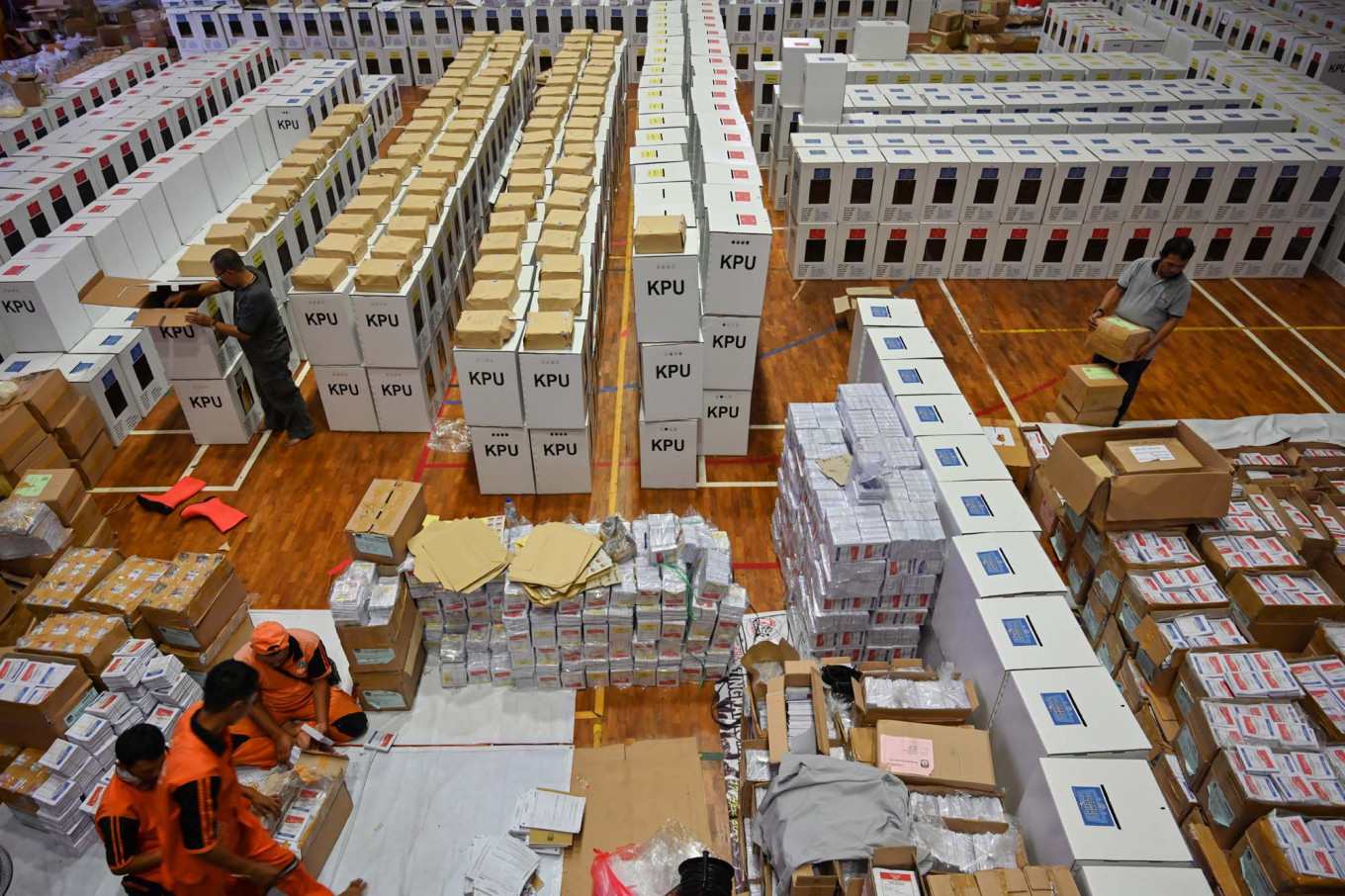Popular Reads
Top Results
Can't find what you're looking for?
View all search resultsPopular Reads
Top Results
Can't find what you're looking for?
View all search resultsCivil group challenges legislative threshold at court
Change text size
Gift Premium Articles
to Anyone
A
n election watchdog, the Association of Elections and Democracy (Perludem), is challenging a provision on the legislative threshold at the Constitutional Court, asserting that the provision was made without clear and transparent scientific grounds and, therefore, undermines democracy.
The disputed provision in the 2017 General Elections Law stipulates that all political parties competing in the elections must secure at least 4 percent of the national vote in order to acquire seats at the House of Representatives.
Perludem is demanding that the court order lawmakers to include a measurable, rational and transparent formula for determining the threshold in the provision.
The petition was filed last Thursday, as major parties in the House are seeking to raise the requirement to acquire seats in the House from 4 percent of the vote to 7 percent through a draft bill to revise the law for the next elections in 2024.
“The House’s decision to set the threshold [in the 2017 law] seems to be lacking public transparency and accountability. That’s why we filed the petition with the Constitutional Court,” Perludem executive director Titi Anggraini said.
Such a requirement was implemented for the first time in the 2009 legislative elections, which set the threshold at 2.5 percent of the national vote. Nine out of 38 parties competing in the elections at that time managed to send representatives to the House.
Lawmakers have since gradually increased the threshold to 3.5 percent in the 2014 polls and 4 percent in 2019.
Perludem was aware that the country’s multiparty system should be simplified to strengthen the presidential system, as mandated by the Constitution. But it said the lawmakers had failed to provide any scientific grounds behind their past decisions to raise the threshold.
Perludem fears the trend will continue without clear scientific calculations, with Titi saying it would instead undermine democracy and cause voters to lose political representation in the upcoming elections in 2024.
The General Elections Commission (KPU) recorded that 13.5 million votes, or 9.6 percent of the 139.97 million valid votes cast in the 2019 elections, did not result in representation at the House. These votes were cast for candidates from eight parties that failed to meet the 4 percent threshold, such as the Indonesian Solidarity Party (PSI), the Crescent Star Party (PBB) and the Perindo Party.
“We are not seeking full annulment of the threshold. We only want the House to provide strong arguments and set certain calculations in the provision," Titi said.
The threshold has been challenged by civil groups, political parties and politicians at least four times since its inception, with the first petition coming from 10 small political parties and eight legislative candidates in 2008. The latest petition was filed by newcomer Garuda Party in 2018.
The Constitutional Court, however, has either rejected or dismissed the petitions, saying the electoral threshold neither violates the Constitution nor restricts people’s political aspirations.
There is a possibility that the court will again dismiss any new petitions challenging the threshold if petitioners fail to present their cases on different grounds.
But Titi said she was confident about Perludem’s petition because they were challenging the empirical approach of the threshold, unlike past petitioners.
“We hope the ruling will help the House in setting the new threshold in the amendment of the election law – if we win the case. The timing [of the petition] is right since the House is currently deliberating the law,” she said.
The proposed 7 percent electoral threshold has caused a stir in the House, with political parties controlling a small number of seats in the legislature objecting to it. The Democratic Party, the National Mandate Party (PAN) and the United Development Party (PPP) – the three parties at risk of losing representation in the House in 2024 if a higher threshold is introduced – have demanded the threshold be maintained at 4 percent.
The House is also mulling over changing the open-list proportional representation electoral system that allows legislative candidates with the most votes to automatically secure seats after the election into a closed-list system that will grant political parties the power to decide which candidates would represent them in legislative bodies.
Chairman of House Commission II overseeing home affairs, Ahmad Doli Kurnia from the Golkar Party, said lawmakers welcomed any efforts and suggestions from the public to help them refine election legislation, including the provision on the electoral threshold.
“I think the current election law seems to have benefited certain political groups, but now we are trying to incorporate more public interests into the law,” he said.










